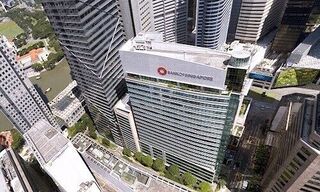Once self-proclaimed as the «world’s local bank», HSBC’s latest strategic overhaul points to more of the same: an even more deglobalized future. This inspires more questions than answers.
In 2011, HSBC operated in nearly 90 countries in the world and less than a decade later, it is operating in around 50 countries with further reductions including a 15 percent cut to its workforce (35,00 jobs) and a pullback on operations in Europe and the U.S. Just last month, the bank was reportedly mulling more exits including Turkey and other smaller markets where it lacks competitive advantage such as Armenia, Greece, and Oman.
And it does not help that it is simultaneously dealing with post-Brexit uncertainty in the U.K. and continued legal troubles with Huawei in the U.S. where it was most recently accused of being favorably overlooked by the American government over violations of sanctions against Iran.
Meanwhile, with Asia accounting for about half of the total revenue generated, it is only natural that new resources are being further concentrated in the same region deemed mission-critical since former CEO Stuart Gulliver embarked on a pivot in 2015.
Internal Memo
«Asia is central to the group and will in the future form a larger proportion of the group's capital resources,» regional CEO Peter Wong said in an internal memo. «Growth will be achieved by investing in resources where most opportunities lie.»
Within the vast and heterogeneous Asian market, the bank has indicated that this opportunity is in Southeast Asia alongside Hong Kong, Macau and Guangzhou, also popularly dubbed the Greater Bay Area. Aligning its interest with Beijing’s top dogs, HSBC is betting on greater integration and connectivity with China and it is positioning itself for the opportunity with 8,000 staff in about 170 outlets across the mainland.
With wealth management named amongst its key priorities, the bank launched its first high net worth center in China last year based in Shanghai.
Too Concentrated?
Whilst the bank is indeed «unique positioned,» according to HSBC CFO Ewen Stevenson to capture the «fantastic secular growth opportunity», a concentrated bet on sub-regions may not be ideal. Its India business, which generated the third-most revenue in the region at $1 billion, was notably not mentioned as a key beneficiary of new investments.
In addition to an ongoing coronavirus outbreak which the bank has already announced could result in as much as $600 million in additional provisions, the prospects of Hong Kong protests remain on the horizon. Amongst global banks, this is also uniquely an HSBC problem especially due to perceived support of anti-democracy efforts after the closure of an account allegedly funding anti-government activities.
One Country, Two Systems
The bank subsequently suffered acts of vandalism including against its ATM branches and the iconic lion statues at its headquarters.
«We deplore all violence and support a peaceful resolution under the framework of ‘one country, two systems’,» said HSBC ’s group chairman Mark Tucker. «I am enormously proud of the dedication and perseverance of our people in Hong Kong, who have continued to support our customers to their utmost ability in spite of the difficulties they have faced.»






















